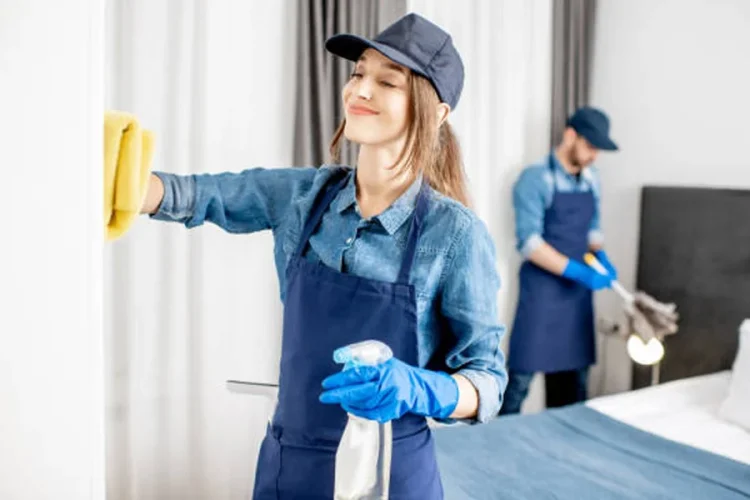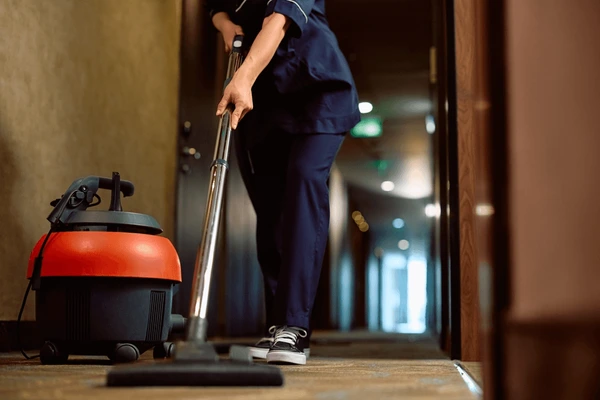Introduction
Hotel cleaning is one of those quiet yet essential practices that determines how guests experience a stay. A spotless lobby, crisp bed linen, and gleaming bathrooms are not accidents; they are the product of an organised and disciplined routine. In Singapore, where tourism and business travel converge, the demand for high standards of cleanliness has become even more pronounced. The work of cleaning goes beyond appearances. It is about shaping trust, safety, and the atmosphere that encourages people to return.
Why Hotel Cleaning Matters
The hotel industry lives and dies on reputation. A single guest’s impression can influence hundreds of potential visitors through online reviews. Cleanliness is not a feature; it is an expectation. Regular, thorough cleaning:
- Protects healthby reducing germs and allergens.
- Increases guest satisfactionby creating comfort and peace of mind.
- Maintains property valuethrough consistent care of furniture and fixtures.
- Strengthens reputationby ensuring positive feedback and repeat bookings.
As one Singapore hospitality manager explained, “Guests can forgive a late check-in or a slow lift. But they do not forgive dirty bathrooms or dusty carpets.”
Core Elements of Hotel Cleaning
Behind the scenes, hotel cleaning routines are carefully structured to cover every area. Common tasks include:
- Guest rooms: Making beds, disinfecting surfaces, vacuuming carpets, and replenishing amenities.
- Bathrooms: Scrubbing tiles, polishing mirrors, and ensuring fresh towels.
- Public spaces: Sweeping lobbies, sanitising lifts, and keeping corridors spotless.
- Dining areas: Cleaning tables, sanitising food preparation zones, and managing waste.
- Back-of-house areas: Maintaining staff facilities and laundry rooms.
Each task might seem small in isolation, but together they form the rhythm of order that defines a guest’s stay.
Challenges Unique to Hotel Cleaning
Unlike other sectors, hotels operate continuously. Guests arrive and depart at all hours, leaving staff little downtime. The main challenges include:
- Time pressure, especially during peak check-in and check-out windows.
- High expectations, with guests scrutinising every detail.
- Labour intensity, requiring physical effort day after day.
- Sustainability demands, balancing eco-friendly practices with thorough cleaning.
- Unexpected messes, from spills in lobbies to emergencies in rooms.
Singapore’s position as a global destination adds further pressure. With visitors from across the world, hotels must uphold standards that meet both local regulations and international expectations.
Best Practices in Hotel Cleaning
Hotels that excel in cleanliness often share similar strategies:
- Standardised checkliststo ensure consistency.
- Thorough staff trainingcovering hygiene, hospitality, and safety.
- Use of modern equipmentsuch as steam cleaners and microfibre systems.
- Regular deep cleansin addition to daily routines.
- Attention to detail, from disinfecting light switches to dusting high corners.
A housekeeping supervisor in Singapore remarked, “We train our team to think like guests. What would you notice if you walked into the room? That perspective changes everything.”
The Role of Sustainability in Hotel Cleaning
Guests increasingly expect hotels to demonstrate environmental responsibility. Cleaning practices now often include:
- Eco-friendly cleaning agentsthat are safe and biodegradable.
- Microfibre clothsthat reduce water and detergent use.
- Energy-efficient laundry systemsfor linens and towels.
- Waste separationto improve recycling efforts.
In Singapore, sustainability is not simply a trend but a government-backed priority. Hotels that embrace greener cleaning not only meet guest expectations but also contribute to the city’s wider environmental goals.
Technology Transforming Hotel Cleaning
Technology is reshaping the method of maintain hotel cleanliness. Digital checklists track housekeeping tasks. UV disinfection devices sanitise surfaces quickly. Robots vacuum lobbies and corridors, freeing staff to focus on detail work.
Singapore’s hospitality industry has been quick to adopt such innovations. Automated systems help hotels meet rising cleanliness demands while managing staff shortages. Technology does not replace human care, but it supports it, ensuring standards remain consistently high.
Guest Perception and Experience
For guests, cleanliness is about more than hygiene; it is about respect. A well-kept room conveys that the hotel values their presence. A missed detail, dust on a shelf, stains on a carpet, signals neglect.
Public perception is equally shaped by cleanliness. A gleaming lobby reassures arriving guests, while clean dining areas reinforce the safety of food and drink. As one frequent traveller in Singapore noted, “You remember the feeling of stepping into a room that smells fresh and looks perfect. It tells you immediately that you are cared for.”
Balancing Costs and Benefits
Maintaining strict cleaning standards requires investment in staff, training, and supplies. Yet the cost of neglect is far higher. Negative reviews, reduced bookings, and structural damage from poor maintenance can quickly outweigh savings from cutting corners.
In Singapore, where competition among hotels is intense, cleanliness often acts as the deciding factor for guests choosing between similar options. Hotel cleaning is not simply an expense but a strategy for survival and success.
Conclusion
Hotel cleaning is the invisible foundation of hospitality. It reassures, protects, and elevates the guest experience. From spotless bathrooms to polished lobbies, it creates an environment of trust and comfort. In Singapore, where visitors arrive with high expectations, the discipline of cleaning reflects not only the standards of the hotel but the standards of the city itself. In every sense, guest satisfaction begins and ends with hotel cleaning.


